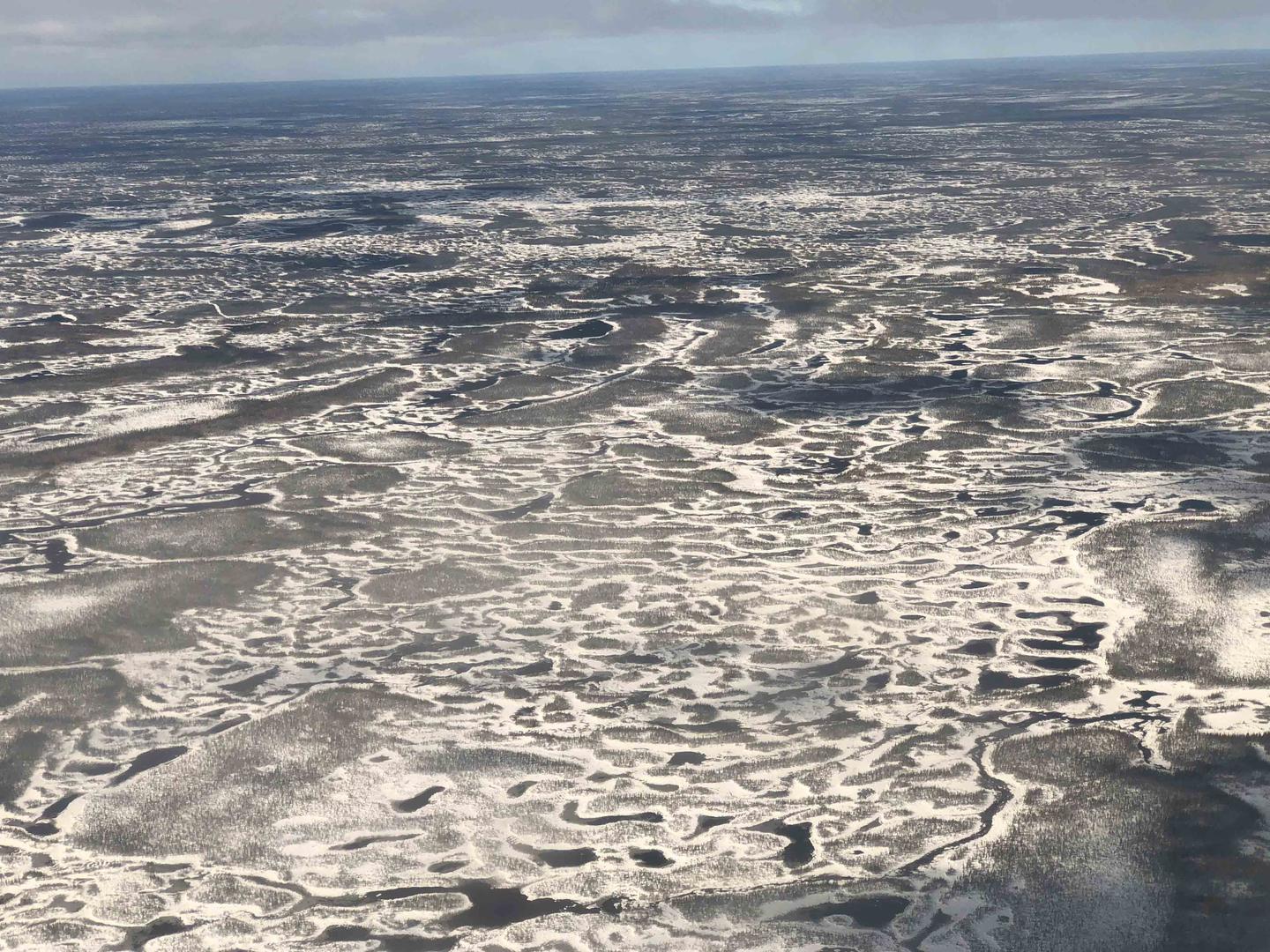Canada: Make First Nations Water Supply a Priority
Expand Aerial photo of the vast freshwater resources in the Hudson Bay Lowlands, Ontario, Canada.

October 2018. © 2019 Human Rights Watch (Toronto) – Canada’s new government should make addressing the lack of safe drinking water in many First Nations communities in Canada an urgent priority, Chiefs of Ontario and Human Rights Watch said today. Despite some progress over the last four years, successive Canadian governments have an overall record of failure to deliver on their promises for safe drinking water. Aerial photo of the vast freshwater resources in the Hudson Bay Lowlands, Ontario, Canada. October 2018. Human Rights Watch and Chiefs of Ontario are releasing a guide on the human right to water for First Nations communities and advocates.
The report provides an overview of the legal framework behind the human right to water and recommendations on how to work with government officials and other towards the realization of this right. October 23, 2019 Report The Human Right to Water A Guide for First Nations Communities and Advocates Download the full report in English A Guide for First Nations Communities and Advocates “Despite focused media and government attention, many First Nations communities in Canada face a daily struggle to get safe drinking water,” said Amanda Klasing, acting women’s rights co-director at Human Rights Watch. “More needs to be done, and we hope this guide will be an additional tool for communities to make their voices heard as a new parliament is seated and gets to work.” In 2015 and 2016, Human Rights Watch conducted research in First Nations communities in Ontario and found that the Canadian government had violated a range of international human rights obligations by failing to provide a safe water supply to First Nations reserves. Since that time, the federal government has taken steps to increase transparency in situations in which First Nations communities have long been without a safe water supply.
The federal government stated their intention to work more closely with the communities to address the problems, including working to develop an assets management approach. Such an approach would ensure that funds and other resources are sufficient for operation and maintenance to keep functioning systems in good working order. Indigenous Services Canada in September 2019 announced new investments in operations and maintenance consistent with this approach, a move that First Nations have long called for.
The government should include sufficient funds in the budget to support the effort. There has also been regional engagement by the federal government with First Nations on potential successor legislation to the controversial Safe Drinking Water for First Nations Act. While more engagement by Indigenous Services Canada is expected in early 2020, First Nations need assurances that the commitment to co-development of legislation on safe drinking water in reserves will ensure First Nations have a meaningful role in writing the rules for developing and maintaining safe water supplies in their own communities. Many communities on First Nations reserves face immediate water emergencies that need urgent attention. At least 56 drinking water advisories remained in place as of October 4, and the underlying systemic water and wastewater problems facing First Nations in Canada remain.
The Neskantaga First Nation in northern Ontario has had a Boil Water Advisory in place for the last 23 years and recently faced an infrastructure failure that led to evacuation of the community. June 7, 2016 Report Make it Safe Canada’s Obligation to End the First Nations Water Crisis Download the full report Download the summary and recommendations Download the summary and recommendations in French Canada’s Obligation to End the First Nations Water Crisis The Chiefs of Ontario continue to press federal and provincial governments to provide safe, potable drinking water – which is a human right – for First Nations peoples.
The Chiefs of Ontario are advocating for sustainable water systems under a cooperative effort with the federal governments based on truth and reconciliation. It is often those who least contribute to water crises around the world who are most affected by the outcome, Human Rights Watch and Ontario Chiefs said. Everyone is entitled to safe drinking water and sanitation. Canada has played an important role in promoting efforts to meet this goal globally. First Nations communities are working on the front lines to see that this obligation is met in Canada. “Water is life,” said Ontario Regional Chief RoseAnne Archibald. “We recognize women as the sacred keepers of the water and know that it's a gift that connects all life. Water is significant to our way of life and livelihoods, and we recognize our inherent responsibilities as caretakers to protect water. Our responsibilities and our rights include all aspects of the use of water, jurisdiction and stewardship over use and access to water, and the protection .
Read the full article at the original website
References:
- https://www.hrw.org/americas/canada
- https://www.hrw.org/node/334782/
- https://www.hrw.org/sites/default/files/report_pdf/water1019_brochure_web.pdf
- https://www.hrw.org/about/people/amanda-klasing
- https://nam02.safelinks.protection.outlook.com/?url=https%3A%2F%2Fwww.hrw.org%2Freport%2F2016%2F06%2F07%2Fmake-it-safe%2Fcanadas-obligation-end-first-nations-water-crisis&data=02%7C01%7Cklasina%40hrw.org%7Ce19f24bba3c54603d3a408d74bf9ec00%7C2eb79de4d8044273a6e64b3188855f66%7C1%7C0%7C637061409098236669&sdata=rlBV0AWwh%2B2r1ipM%2F%2FwmCacwYbQIczgusBrrWAU5kXQ%3D&reserved=0
- https://www.sac-isc.gc.ca/eng/1506514143353/1533317130660
- https://www.hrw.org/news/2019/10/02/canada-blind-eye-first-nation-water-crisis
- https://www.hrw.org/sites/default/files/report_pdf/canada0616web.pdf
- https://www.hrw.org/sites/default/files/report_pdf/canada0616_brochure_web.pdf
- https://www.hrw.org/sites/default/files/report_pdf/canada0616fr_brochure_web.pdf
